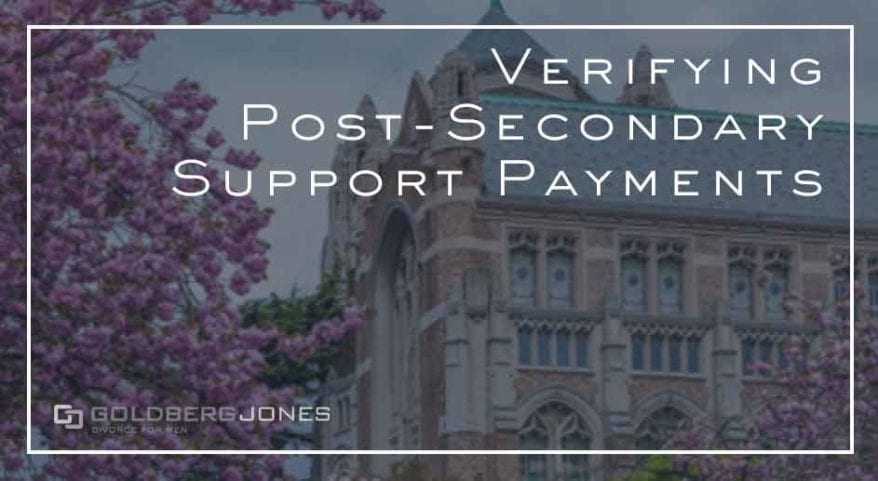In most cases following divorce, child support payments end when a child turns 18, or when they graduate high school, whichever comes later. There are scenarios where it continues, and post-secondary education is probably the most common. In this situation, payments continue beyond the child’s 18th birthday.
These payments are expensive—it’s no surprise college is pricey. You may be on the hook for your child’s tuition. It makes sense to want to verify these post-secondary support payments, but how?
One of our founding partners, Rick Jones, regularly appears on the Danny Bonaduce and Sarah Morning Show, to answer common family law questions. On a recent episode, a listener emailed in a question about this very topic.
His daughter recently graduated from community college. She says she plans to enroll in the University of Washington but hasn’t given him any proof. He wants to continue to support her, but at the same time, he doesn’t want to be taken advantage of.
How can he go about verifying his post-secondary support payments?
Related Reading: When Can Child Support Continue Past Age 18?
Check out the Post-Secondary Support Conversation Below:
Question: “Tom’s daughter recently graduated from a community college. The court orders say he has to pay [post-secondary support] until she graduates or [until] her 23rd birthday. Supposedly she’s trying to go to the UW now, but she’s not supplied him any kind of paperwork or proof. Just a Facebook picture of her at Husky Stadium. [Background laughter.] What kind of proof do they need to supply that she’s actually enrolled in the university?”
Danny: “I have pictures of me at Husky Stadium.”
Sarah: “Does she have to provide proof or because she graduated from community college, is that her graduating and he’s done [paying child support]?”
Rick: “Well first, Go Dawgs!
“You know, it’s actually a really good question. The fact that she graduated from a community college doesn’t necessarily put an end to it because we know that there can be more, especially for an aspiring student. Certainly, the court’s attitude is very open to continuing education, so I don’t see the door shutting on that.
“At the same time though, she is going to need to prove that it’s more than just a spoof on him. Whether it’s registration, whether it’s a grade report or at least progress to it.
“If she misses a quarter or misses a summer, it’s not going to be the death-nail for it. But let’s say she misses a couple of quarters or doesn’t enroll for a couple of quarters, then that is problematic for her.”
Sarah: “And does he just stop paying then, or does he have to go back to the court and say, ‘She’s not proven that she’s going to school, can I stop paying?'”
Rick: “It depends on how he’s paying right now. Most orders go through the state, through this DCS [Division of Child Support] I was talking about. So if he’s already doing that, he really should be continuing that or at least getting with them and explain why he’s going to be stopping.
“If he’s paying the institution directly, well, obviously that stopped because it’s no longer community college.
“If he’s paying the mother—which would be rare for post-secondary—but if he’s paying the mother, then yeah, stop.”
Related Reading: Child Support Modification: How To Change A Child Support Order
